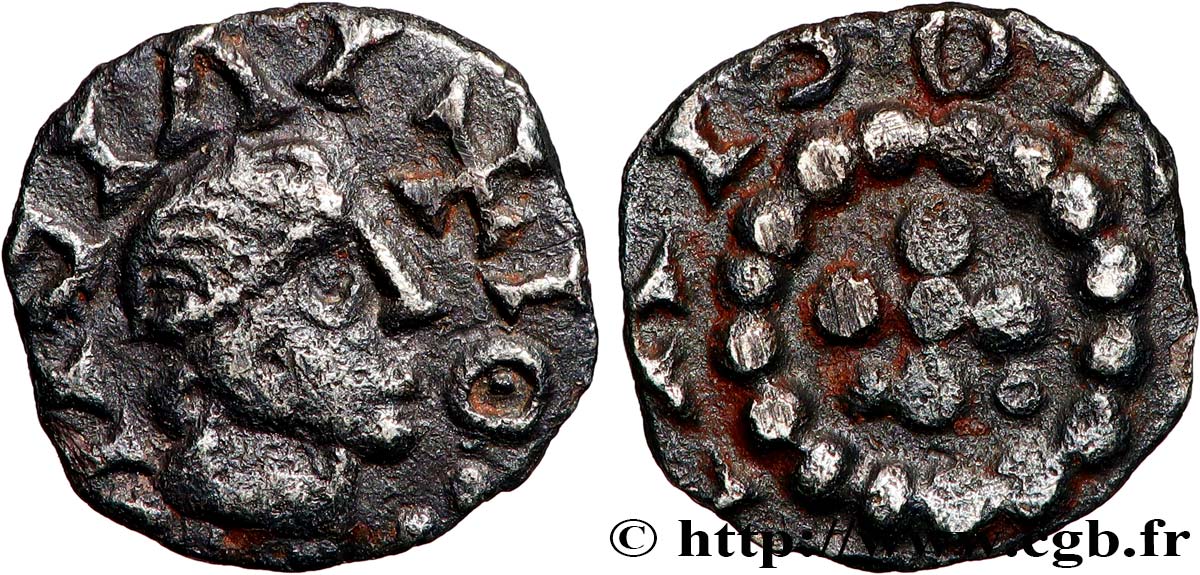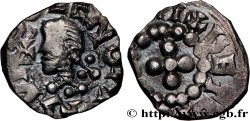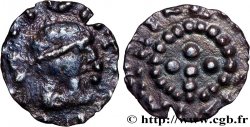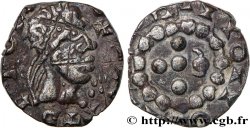Obverse
Obverse legend : + IO[...]IAI.
Obverse description : Tête stylisée à droite, une petite croisette devant le visage.
Reverse
Reverse legend : [...]AICO[...].
Reverse description : Croix formée de cinq globules.
Historical background
BOURGES (CHER) - BETOREGAS (CIVITAS BITURIGUM)
(late 7th - early 8th century)
Once Avaricum was conquered, the ancient city was rebuilt in the Roman style with a square plan and many monumental complexes: monumental gate, aqueducts, baths and amphitheater. Many villas were built and the city will reach a size greater than that of the Middle Ages. Subsequently, during the barbarian invasions, the city folded in on itself and a Gallo-Roman enclosure was built with the remains of the dismantled official buildings.. Bourges also became the seat of an archdiocese, to which the dioceses of Albi, Cahors, Clermont, Mende, Puy-en-Velay, Rodez, Saint-Flour and Tulle belonged.. The diocese is one of the very first to be founded by Saint Ursin during the first evangelization campaigns in Gaul around the 4th century.. As a result, the diocese obtains privileges and the archbishops of Bourges become primate of the Aquitaines and Patriarch of the Roman church.. From the Middle Ages these prerogatives are disputed in particular by the archbishops of Bordeaux, and currently only constitutes an honorary title.. The Merovingian period leaves few traces. The city, which belonged to the kingdom of Aquitaine, was taken by Charles Martel in 731, then immediately taken over by Eudes of Aquitaine. Pepin I stormed it in 762, destroyed its ramparts and incorporated it into the royal domain under the care of its counts. Source: Wikipedia.










 Report a mistake
Report a mistake Print the page
Print the page Share my selection
Share my selection Ask a question
Ask a question Consign / sell
Consign / sell
 Full data
Full data













